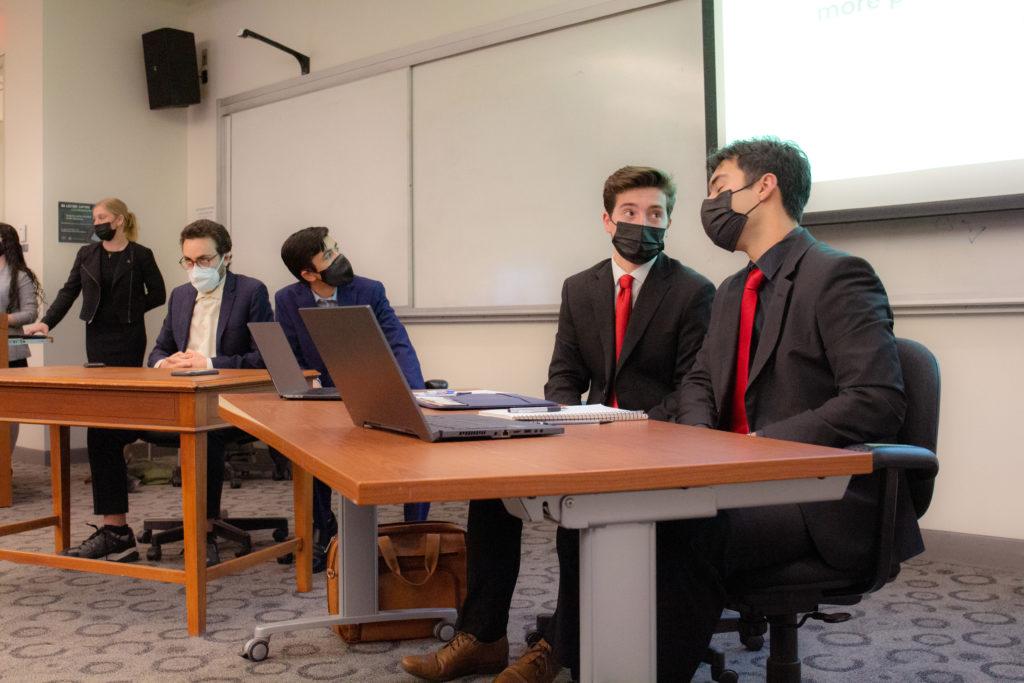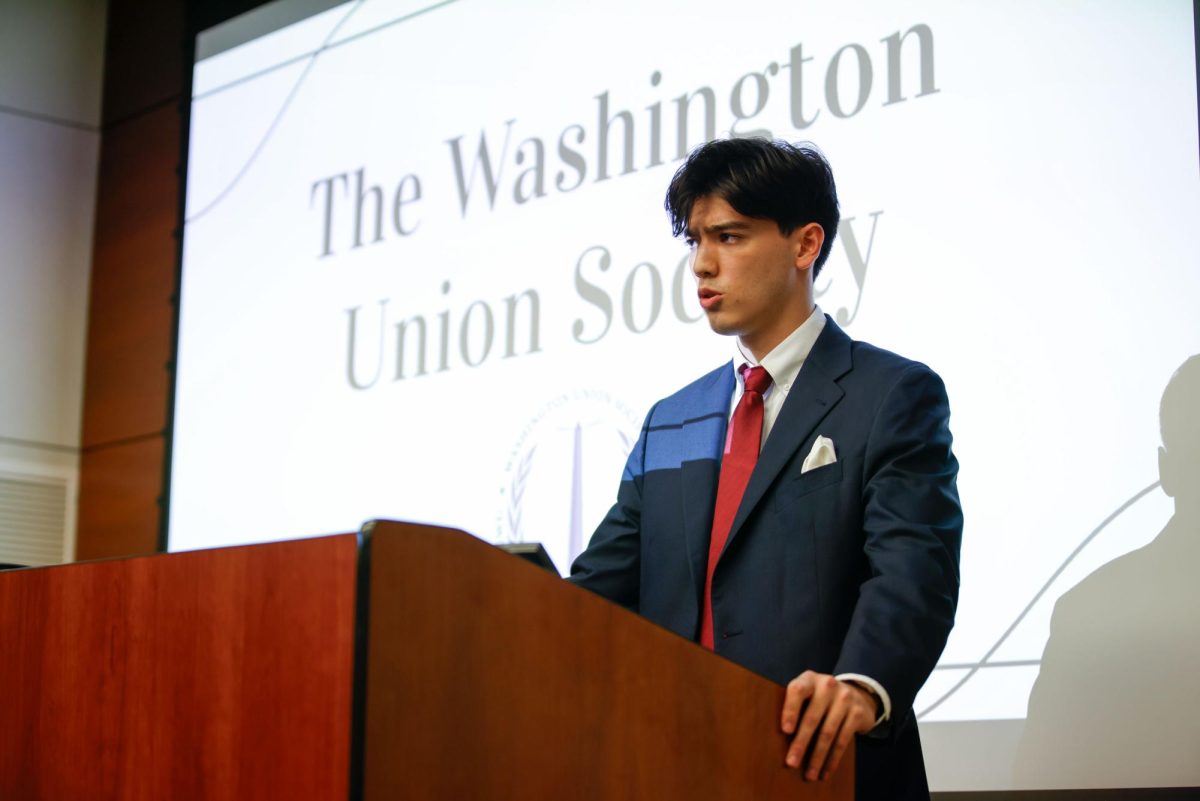GW College Democrats and GW College Republicans hosted a “head to head” debate at the Elliott School of International Affairs Wednesday.
Members from College Democrats and College Republicans met in the Elliott School’s basement with two students on each side debating federal COVID-19 policies, voting rights legislation, the criminal justice system reform and potential U.S. military involvement in Russia and Ukraine. About 50 people attended the event, which was moderated by Maria Leon Acosta, the vice president of political affairs at College Democrats, and Alex Hudepohl, the director of political affairs for College Republicans.
The moderators asked the debaters a series of four questions, after which each side could deliver a one-minute opening argument followed by a 10-minute back-and-forth debate on the topic.
Sean Grey, a sophomore studying political science and economics from College Democrats, said public voter fraud is relatively rare, and lawmakers should not spend as much time passing legislation to prevent it, as compared to other issues like criminal justice or healthcare. He said state lawmakers that support passing voting restrictions are wrong to restrict their constituents’ constitutional rights.
“If you’re going to do something which is going to limit that, you should have a very, very good reason – the standard is high,” he said.
Grey said the criminal justice system should focus on “rehabilitating” prisoners instead of solely punishing them. He said convicted criminals in the United States are likely to commit additional offenses or return to prison after release, which suggests a need for a prison system that helps prisoners become “well-adjusted members of society.”
“One thing that is very hard to dispute is that our prison population in this country is exceptionally high compared to the rest of the world,” he said.
Paul Leoni, a freshman studying international affairs and a member of College Republicans, said although the COVID-19 vaccine has significantly reduced the risk of COVID-19 hospitalization, vaccine mandates have been less effective because people can transmit the virus, regardless of vaccination status.
“All the resources that we have in place now no longer justify restrictive mandates on our daily livelihoods,” he said.
Leoni said the Omicron variant and future variants will not cause a large number of COVID-19-related deaths, citing research that found the Omicron variant led to a smaller likelihood of severe illness, according to the Centers for Disease Control and Prevention. He said vaccines are not the only defense against COVID-19, and “natural immunity” and “therapeutics” can help decrease the risk of hospitalization and death.
“It’s now up to the individual to go out and seek them given our handle on the most severe consequences rather than people in the government saying you have to get a vaccine or you’re barred from society,” he said.
Ian Hoerr, a freshman studying international affairs from College Democrats, said the United States should not intervene militarily in a potential conflict between Russia and Ukraine, since it is not a member of the North Atlantic Treaty Organization. He said a war between Russia and the United States would be too costly for both sides, and federal lawmakers should take that into account if fighting breaks out between the two countries.
“That doesn’t mean we can’t do everything we can to try to make sure that this resistance reaches a peaceful resolution,” Hoerr said.
Hoerr said the United States should not allow Russia to expand “beyond its capabilities.” He said if Russia later decides to move into Ukraine’s neighboring states like Poland and Romania, the United States would have to defend them.
“We would have every interest to defend our allies,” Hoerr said.








